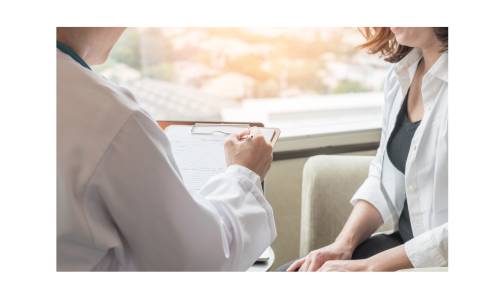
Education
Breast Cancer: Navigating Risk Among Minority Women
5 min. read
Baptist Health Cancer Care
When Hamilton Broadway actress Mandy Gonzalez decided to speak out about her breast cancer diagnosis in 2020, she did so to raise awareness among other Latinas that their ethnicity put them at a higher risk of getting breast cancer at a young age compared to white women. She was in her early 40s.
Numerous studies now show that minorities ― including Black, American Indian/Alaska native and women of Ashkenazi Jewish descent ― also often have poorer outcomes after a breast cancer diagnosis.
Baptist Health Cancer Care experts at Lynn Cancer Institute and Miami Cancer Institute are working to find solutions to the many causes of disparities in care. For example, they are increasing minority enrollment in clinical trials, addressing barriers such as language problems and looking at financial issues that may impact a patient’s ability to access care.
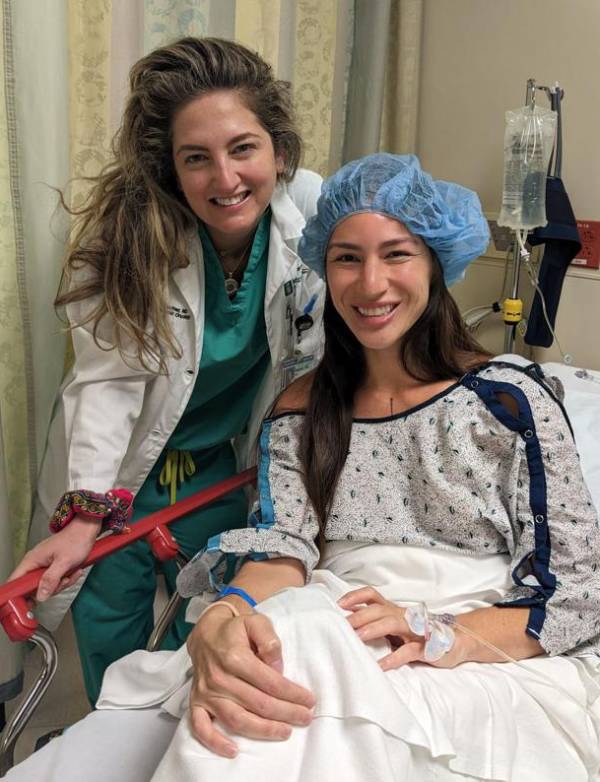
Pictured: Starr Mautner, M.D., breast surgeon at Miami Cancer Institute, and cancer patient DeeDee Bitran, whose Ashkenazi Jewish great-grandmother, grandmother and great aunt all had breast cancer.
One area of particular interest to oncologists is genetic testing and counseling, vital to understanding the disease’s diverse genetic landscape and to helping physicians personalize prevention strategies and tailor treatment if a cancer diagnosis does occur.
“We know that there are genetic mutations that significantly increase risk in specific minority populations, but minority groups often don’t have access to genetic testing and counseling,” says Louise Morrell, M.D., a cancer genetics specialist and medical director of Lynn Cancer Institute. “When we have the detail that genetic testing can provide, we can make recommendations to lower risk and start screenings earlier to detect cancer sooner.”
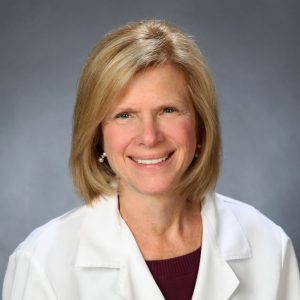
Breast cancer is the most common cancer and the second-leading cause of cancer death in women in the U.S. Nearly 300,000 new cases are expected to be diagnosed in 2023, according to the American Cancer Society. Being aware of the link between hereditary and genetic factors and the development of breast cancer is one of the keys to prevention and treatment.
“With the rapid evolution in genetic testing, we have greatly expanded our testing panels to include many more genes known to increase breast cancer risk if an inherited mutation is detected,” says clinical geneticist Arelis Martir-Negron, M.D., with Miami Cancer Institute.
Most women know that mutations in the BRCA1 and BRCA2 genes raise the breast cancer risk in Ashkenazi Jewish women, as well as Blacks and Hispanics. But physician researchers now know of many other gene mutations that up the chances of breast cancer, including ATM, BARD1, CHEK2, RAD51C, RAD51D, PALB2, CDH1 and TP53.
Any woman can inherit a mutation from her parents, which is why it’s especially important to know your family health history from both your mother and father, the doctors stress. At the same time, while up to 15 percent of cancers are tied to a hereditary link, not everyone with a genetic mutation will go on to develop cancer.
Information for Minority Women
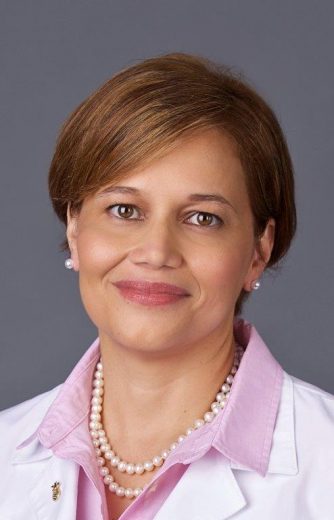
Arelis Martir-Negron, M.D., a medical geneticist with Baptist Health Miami Cancer Institute.
Black women are more likely to be diagnosed with breast cancer at a younger age than white women, and with more aggressive disease. In addition, a Black woman in the U.S. who gets a breast cancer diagnosis before age 50 is more than twice as likely as a white woman to die from the disease.
About half of all women of Ashkenazi Jewish ethnicity will be diagnosed with breast cancer by the time they are 70 years old, according to the Centers for Disease Control & Prevention. Triple-negative tumors, which can be very resistant to treatment, are more common in Black and Hispanic women. Another recent study suggests that Hispanic/Latina women who live in the U.S. are more apt to get breast cancer than those living in other countries.
The U.S. Preventive Services Task Force recently updated its mammogram screening recommendations, saying that all women should be screened at least every other year, beginning at age 40. Oncologists with Baptist Health Cancer Care follow the recommendation of the American College of Radiology, which advises yearly mammograms beginning at age 40 for women of average risk.
Changes in lifestyle also help prevent cancers, and the latest research indicates that some 30 percent of breast cancers may be preventable if a woman loses excess body weight, increases physical activity and lowers alcohol intake, according to the American Cancer Society’s report, Breast Cancer Facts & Figures, 2022-2024.
The bottom line, the doctors say, is that all women ― but particularly minorities and those who are Ashkenazi Jews ― should speak to their physicians and have a formal risk assessment by age 30. If they are determined to be at higher-than-average risk, they should begin screening at an earlier age.
For patients like DeeDee Bitran whose Ashkenazi Jewish great-grandmother, grandmother and great aunt all had breast cancer, discovering her mother was BRCA-positive was the first step in her own breast cancer journey. Ms. Bitran, too, tested positive for the mutation and at the age of 22 began breast MRIs with and without contrast every year, along with breast ultrasounds.
The information impacted her life in other ways, as well. “It changed when I chose to get married and how quickly I wanted to start a family,” Ms. Bitran says.
In February, after having a daughter in 2020 and a son in 2021, Ms. Bitran underwent a prophylactic bilateral mastectomy at Miami Cancer Institute, performed by breast surgeon Starr Mautner, M.D. That was followed with reconstructive surgery in June by Harry Salinas, M.D., an Institute breast reconstructive surgeon. She was 33. “My doctors were amazing. They always made themselves available. They were caring and knowledgeable.”
Ms. Bitran knows that two important decisions still await her: As she gets closer to menopause, she will need to decide when to have a hysterectomy since the risk of gynecological cancers is also increased in women who have BRCA mutations. And, she and her husband will have to choose the appropriate time ― still in the distant future ― to discuss genetic testing with their children, currently ages 4 and 2.
If you have reason to believe you are at risk for a hereditary cancer, the doctors suggest speaking to your OB/gyn or primary care physician about the value of genetic testing and counseling. The cost of genetic testing is typically covered by insurance but is affordable for most if it is out of pocket. For information about the program offered at Miami Cancer Institute, click here. For information about the program offered at Lynn Cancer Institute, click here.
Healthcare that Cares
Related Stories
View All Articles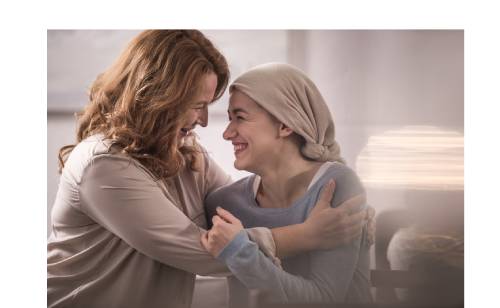
Key Advances in Treating Metastatic Breast Cancer are Helping More Patients
October 11, 2023
4 min. read
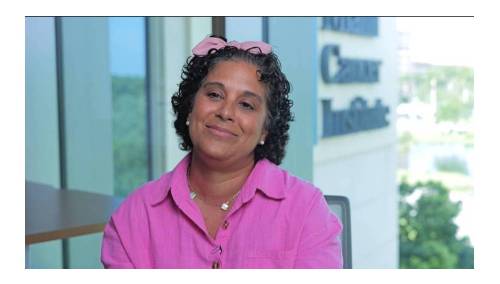
A Self-Exam Led to Jolting Breast Cancer Diagnosis: ‘You have to Find Joy in Every Little Step’
October 5, 2023
4 min. read
Video
